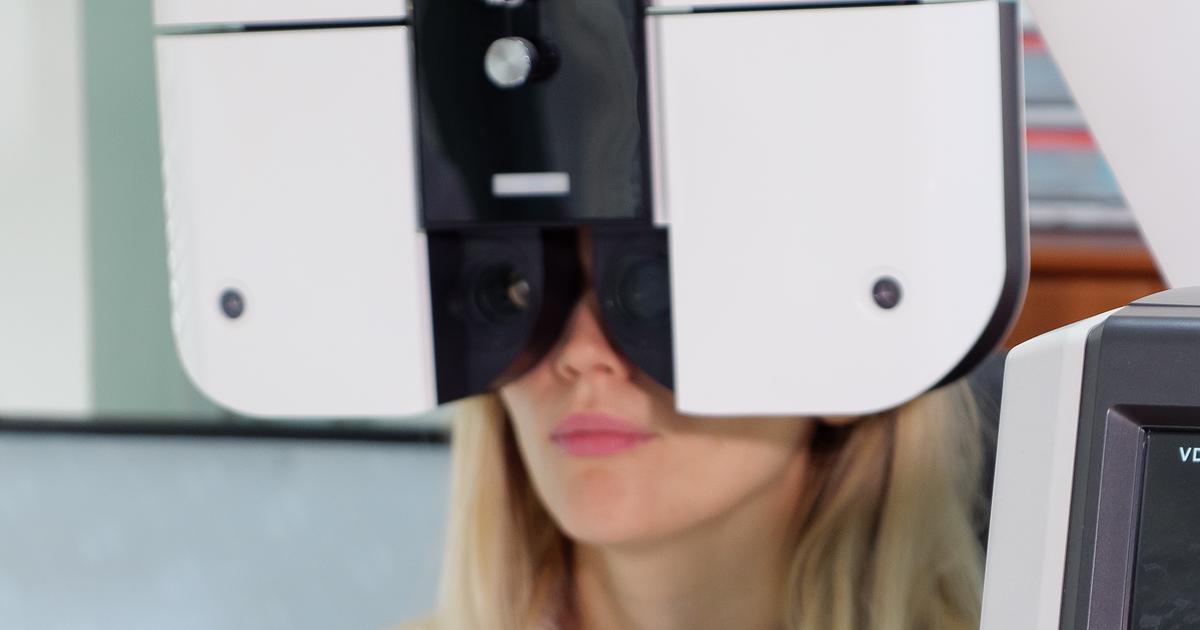Side Effects Of Antidepressants
Antidepressants are used to treat depression, anxiety, other mood disorders, and a variety of physical health conditions. Antidepressants that work correctly can relieve depression symptoms and are an integral part of treatment. The medications alter the chemical balances in the brain so the brain will have the correct number of neurotransmitters. Like any medication, antidepressants have some potential side effects. If the side effects are serious enough to be inhibiting an individual's day-to-day life, they should talk to their doctor about changing their dose or switching medications. If individuals start experiencing unusual mood swings, irrational behaviors, or thoughts of suicide, they should get in contact with their doctor immediately. Many common and non-dangerous side effects can be mitigated through at-home treatment or minor medication adjustments.
Get to know the most common side effects of antidepressants now.
Nausea

There are multiple different types of antidepressants, and nausea is a potential side effect of nearly all of them. Selective serotonin reuptake inhibitors (SSRIs) are the most commonly prescribed type of antidepressant, and they're also the most common type associated with nausea, which may be bad enough to induce vomiting. Most patients find the nausea is worst when they first start a medication, and it may subside after they've taken it for a while. Some patients do find their nausea and vomiting are so persistent and severe that they need to stop taking their antidepressant.
It's rare for antidepressants to cause toxic effects within the digestive tract. Instead, vomiting and nausea are caused by the medication's effect on an individual's central nervous system. With SSRIs, however, the body produces increased serotonin in both the digestive system and brain, which can lead to nausea from both sides. Taking the medication with food can help, as can taking it at bedtime. Antacids can reduce acid reflux symptoms, while ginger ale can soothe the stomach.
Uncover more potential side effects of antidepressants now.
Dry Mouth

Many medications can cause dry mouth, antidepressants being just one of them. An individual's mouth becomes dry when their salivary glands don't produce enough saliva. Saliva is necessary for breaking down and removing food from the mouth, and a lack of saliva can lead to serious dental problems. If food gets stuck in the teeth without being broken down, it can contribute significantly to tooth decay. Plaque and bacteria also become stronger when there isn't saliva to inhibit their growth. Two factors can cause dry mouth. The first is the salivary gland doesn't produce as much saliva, while the second is an individual's perception of their mouth's dryness becomes more acute. This means it's possible for antidepressants to make a patient's mouth feel drier even if it isn't.
Tricyclic antidepressants have been shown to cause dry mouth more often than SSRIs. Researchers have found age correlates with the prevalence of dry mouth, and older patients have a higher likelihood of impaired salivary function than younger adults.
Read more about the potential side effects of antidepressants now.
Insomnia

Some patients find they experience greater sleep disturbances like insomnia immediately after they begin a new antidepressant, but these problems often taper off or stop entirely after a few weeks. However, some cases of insomnia can persist for as long as the patient takes the antidepressant. Unfortunately, it can be difficult to tell whether insomnia is a symptom of depression itself or a medication side effect.
That said, patients should pay close attention to when their insomnia started. If they experienced insomnia before starting antidepressants, they should make note of any differences. Patients should write down how often their sleep is disturbed, whether it's difficult to fall asleep, how many times they wake up in the night, and how long it takes them to fall back asleep after waking up. Information like this is helpful to doctors, who can advise patients on the best time to take their medication, or whether changing their dosage or specific type of antidepressant is needed.
Keep reading to learn more about the possible side effects linked to antidepressants now.
Fatigue

Fatigue is a common side effect of antidepressants, though the majority of cases tend to resolve after a few weeks of starting the medication. If the fatigue doesn't get better, however, patients should discuss it with their doctor. Like insomnia, fatigue can also be a symptom of the depression itself, which means it's important for patients to make note of their symptoms so they can gauge what is caused by the medication versus their condition.
Tricyclic antidepressants are most likely to cause fatigue, but SSRIs and SNRIs can both also make patients tired. The main goal of antidepressants is to adjust the levels of the neurotransmitters that regulate an individual's mood. However, during this process, the medications can also change other neurotransmitter levels. When acetylcholine and histamine levels are affected, one of the effects is sedation. If patients are so fatigued that staying awake is a struggle, they should speak to their doctor.
Discover additional side effects of antidepressants now.
Constipation

Antidepressants are one of many types of medication that can cause constipation. It's important to have a bowel movement at least once every three days, as longer periods cause the stool to become more difficult to pass. Constipation most commonly occurs with tricyclic antidepressants. Though patients are less likely to experience constipation when taking SSRIs, they do have some potential for this side effect. The reason for the problem is related to a patient's acetylcholine levels. Tricyclic antidepressants block this neurotransmitter from acting, which leads to a slowing of the muscle contractions in the digestive tract. In addition, the secretions that help lubricate feces for easier passage become drier. The best ways to decrease constipation are to eat high-fiber foods, drink lots of water, and exercise regularly.
Get more details on the potential side effects of antidepressants now.
Weight Gain

Weight gain is one of the most frequently reported side effects of antidepressants. It is most likely to occur in patients who take paroxetine, mirtazapine, sertraline, citalopram, duloxetine, escitalopram, or amitriptyline. Of these, mirtazapine and amitriptyline are associated with the most weight gain, and paroxetine carries the highest risk of weight gain. Studies show approximately twenty-five percent of patients using antidepressants called selective serotonin reuptake inhibitors will gain at least ten pounds on the medication. Weight gain is more likely to occur in individuals who have been using antidepressants for over six months. While weight gain is a potential side effect of the majority of antidepressants, patients who take fluoxetine or bupropion typically do not gain weight, and these medicines can even cause weight loss. If weight gain is troublesome, persistent, or severe, patients should speak to their physician about the possibility of switching to another antidepressant. It may be helpful to consult a nutritionist for advice on healthy meal planning and education about strategies that could minimize weight gain.
Discover additional side effects of antidepressants now.
Blurred Vision

Blurred vision is most likely to occur as a side effect of tricyclic antidepressants, including amitriptyline, desipramine, and doxepin. These medications work by blocking the brain's receptors for a neurotransmitter called acetylcholine. As a result, tear production ceases, and the eyes become dry. Patients with blurred vision often describe it as a lack of visual clarity or sharpness, and it can occur in conjunction with sensitivity to light, a sensation of grit in the eyes, eye redness or itching, and a stinging feeling in the eyes. For most individuals, blurred vision resolves on its own within a few weeks of starting treatment with tricyclic antidepressants. Some patients may have difficulty driving, reading, or performing other daily tasks as a result of this change in vision, and it is important to have a comprehensive eye examination to rule out other causes. Patients should also mention this symptom to their primary care provider. Using a humidifier, artificial tears, and lubricating ointments could help in managing this side effect.
Read more about antidepressant side effects now.
Irritability

Irritability is a common side effect associated with many different types of antidepressants. Patients experiencing irritability may find minor issues tend to make them very annoyed or upset, and this side effect could lead to communication problems with family, friends, and co-workers. Over time, irritability might even cause tension and conflicts in relationships at home, school, and work. Some individuals may have anger, agitation, and mood swings in addition to irritability. While this side effect could be mild for certain patients, others might have extreme irritability. Generally, irritability as a side effect suggests the patient's antidepressant is not working for them. Patients and their family members should discuss this side effect with the prescribing physician. If irritability continues for a prolonged period or has a significant impact on the patient's relationships, it may be appropriate to consider trying other types of antidepressants. Patients might want to speak with a mental health professional about ways to manage irritability too.
Continue reading to uncover additional side effects of antidepressants now.
Memory Issues

Tricyclic antidepressants such as amitriptyline and imipramine are known to cause memory issues. Episodes of memory loss and memory impairment have been reported by over one-third of patients who take these medicines, and concentration difficulties occur in more than fifty percent of users. Doctors believe the memory issues associated with tricyclic antidepressants stem from the fact the drugs work by blocking certain neurotransmitters. The memory loss that takes place with antidepressants typically involves a loss of short-term memory, and this may be accompanied by difficulties with information processing and focusing. Short-term memory includes memories of events of the previous few days. Patients experiencing issues with this type of memory might forget what they did the day before yesterday, and they could also forget what they ate for breakfast or where they placed their keys when they came home from work that day. Reducing the dose of a tricyclic antidepressant may sometimes reduce the severity of the patient's memory issues, and switching to a selective serotonin reuptake inhibitor or serotonin-norepinephrine reuptake inhibitor could reduce the chance of this side effect as well. A serotonin-norepinephrine reuptake inhibitor called venlafaxine is believed to be one of the antidepressants that is least likely to cause memory issues, and it is among those with the lowest chance of contributing to memory loss in the elderly.
Get more details on the side effects linked to antidepressants now.
Sweating

Excessive sweating may occur with any type of antidepressant, and doctors estimate that this symptom is experienced by four to twenty-two percent of patients who use these medicines. Excessive sweating is particularly likely to develop in patients taking tricyclic antidepressants or selective serotonin reuptake inhibitors. In fact, a selective serotonin reuptake inhibitor called bupropion causes sweating in twenty percent of users, and other selective serotonin reuptake inhibitors like paroxetine and sertraline are associated with this side effect too. These medications increase serotonin in the brain. Serotonin affects the hypothalamus, a region of the brain that controls the body's core temperature, and the serotonin increase caused by selective serotonin reuptake inhibitors is believed to be the trigger for excessive sweating. Patients with this side effect may find the soles of their feet or the palms of their hands are sweaty regularly, and body odor could become an issue. If sweating is disruptive or affects their quality of life, patients might want to ask their physician about reducing their dose or switching to a different antidepressant. If the patient wishes to remain on their current antidepressant at the same dose, taking a medication called benztropine with the antidepressant may help reduce or eliminate excessive sweating.
